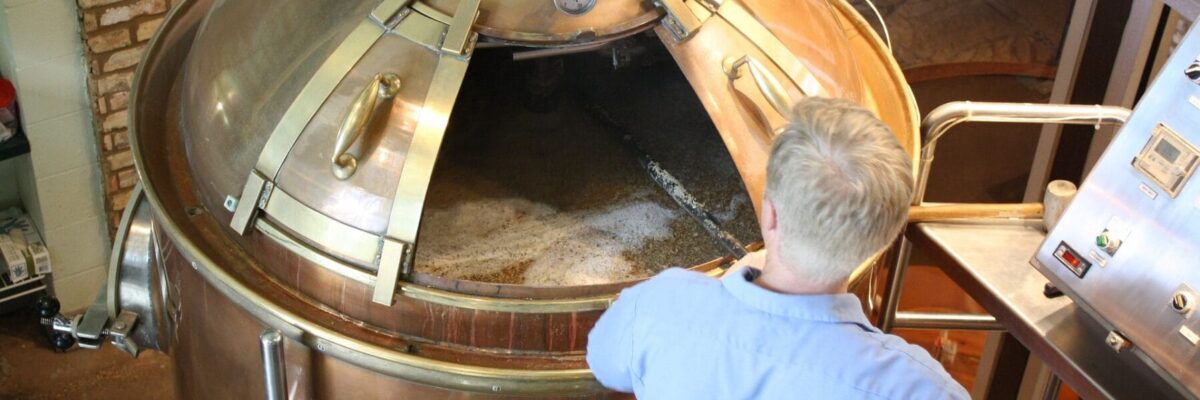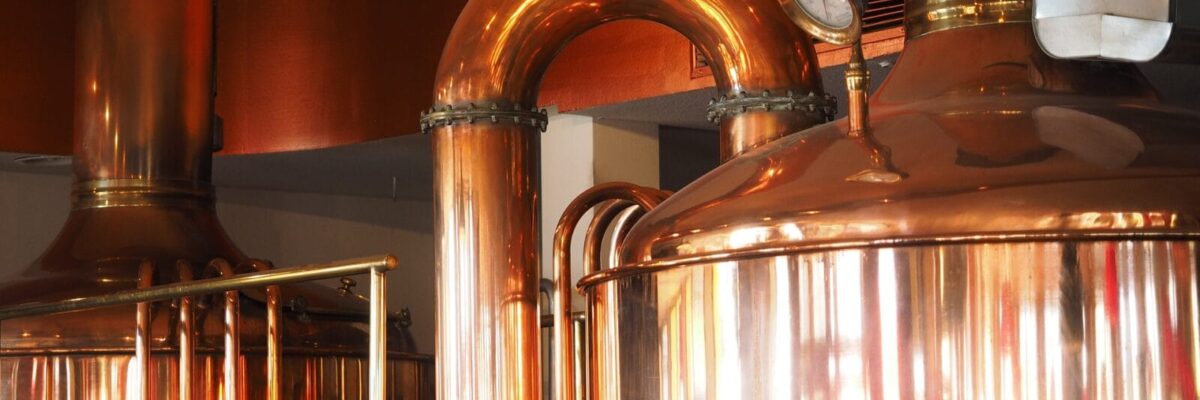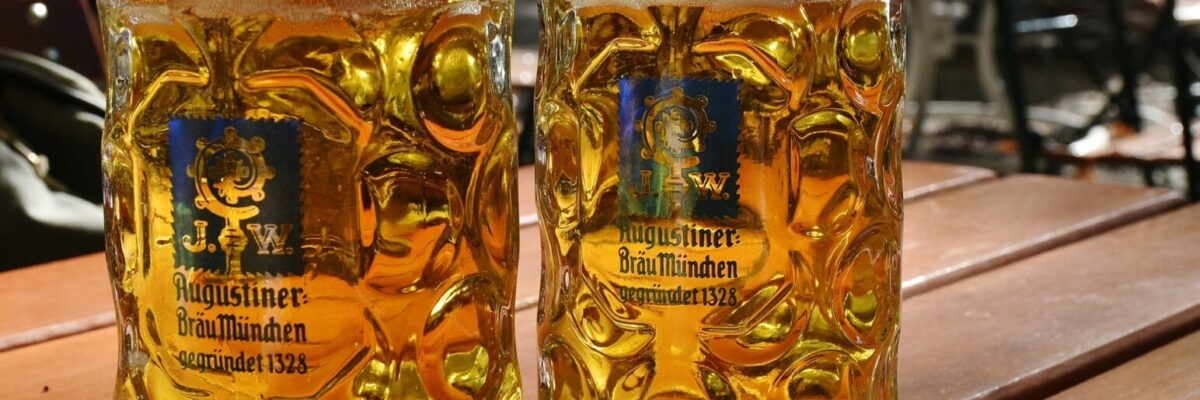If you walk into a bar, the only step between you and a pint of beer is the pull of a beer tap. However, the beer brewing process that comes before this is a long one, involving temperature changes, filtration and storage.
This is where CWI product lines can help support the process, including:
- Malla metálica de punto that makes filtration easy
- Alambre de resistencia to help control temperatures
- Alambre de soldadura to repair and manufacture vessels and boilers
- Alambre de cobre in wort chillers
In a world where home brewing equipment and other machinery have seemingly simplified the beer making process, there are still challenges and demands that must be met to ensure the process works out.
Continue reading to see the impact that our Knitted Wire Mesh, and other products have on beer brewing and production.
Beer Brewing Process

The beer-making process takes many steps that purify the drink, create the desired ABV by fermenting, and perfect the taste. After the first few steps of working with malted barley by mixing and mashing, our products play a role in transforming the wort into beer.
Boilers
After fermentable liquid is extracted in the early steps, it is time to boil the wort. This happens in large brew kettles, which is one example of a brewing vessel that requires Welding Wire for repairs or manufacturing.
During this step, hops are added to the liquid to create the intended bitterness, flavor, and aroma of the beer. Boiling also sterilizes the wort, stopping enzyme activity and extracting hop compounds to begin purifying the product.
As is the case in kitchen heating appliances, Resistance Wire is used in the heating elements for these electric brew kettles. The element is submerged in the wort during the brewing process and can be controlled by a thermostat or temperature controller.
Typically, depending on the beer, 60 minutes is the standard boiling time for wort. As soon as this process is over, the beer must go from hot to cold.

Wort Chillers
After boiling, the wort must be rapidly cooled to avoid allowing off-flavors and haze to form in the finished beer. Wort chillers are typically used to change the temperature of the wort as quickly as possible.
A wort chiller consists of one end attached to your kitchen faucet, where it takes cold water in that runs through the coiled tube and back into the sink. The coiled tube sits in the boiling hot wort, rapidly cooling it. The large surface area of the coil ensures the consistent and quick cooling that is essential to this step.
Copper Wire is often the material of choice for tubes of wort chillers for its heat conductivity and antimicrobial properties.
The ability to efficiently transfer heat makes copper the perfect material for wort chillers. The copper on the coil can handle the extreme heat of the wort while cooling it.
Copper’s natural antimicrobial properties inhibit the growth of bacteria, fungi and viruses, which in turn keeps the beer pure of any unwanted bacteria that could seep in. This effect is created through the oligodynamic effect, referring to the metal’s ability to exert toxic effects on bacteria and other microorganisms.
Fermentation
The most important part of alcohol creation is fermentation. Efficiency and consistency in this process is what leads to purity and quality of the final product.
After boiling and chilling, the wort is transferred into these fermentation vessels. Knitted Mesh screens are often used in this stage to strain out any remaining hop particles or solids that may interfere with the fermentation process.
Beer fermentation entails yeast converting sugar from malted grains into alcohol and carbon dioxide. Within a fermentation vessel, yeast consumes sugar in the wort (liquid from malted grains) which produces alcohol.
This takes place at controlled temperatures which are dependent on the beer. For example, lagers typically ferment at lower temperatures than ales.
Different beers will also require different lengths of time within these fermentation vessels, with a general minimum being 1-2 weeks. Flavor, aroma and alcohol percentage are all affected by the fermentation process, making it both important and precise.
Filtration and Packaging

After the wort has been mashed, malted, boiled, cooled and fermented, you’ve got what should be a perfect finished product. If the beer is clear, carbonated, and has the right color and aroma then you’ve just quality materials and done each step right.
Typically, one last mesh filtration should be done at this stage to ensure any solids that went undetected earlier on are removed. After that, the beer should be perfect.
Dependent on whether this is a commercial or at-home brew, you may be packaging your beer in to bottles, kegs, or large storage vessels. All will be able to preserve the beer you spent so long working on.
For a full step-by-step guide to brewing, check out this article from kegerator.com.
Benefits of Quality Filtration
Using top-end mesh products in beer filtration applications ensures the quality of the final product matches the work that went into brewing. Here are a few ways that proper filtration and calidad mesh can make a difference to the end product.
Clarity and Appearance

The appearance and clarity of a beer is a big part of appealing to consumers and offers visual proof of a quality beverage. Attention to detail in brewing production can be seen if a beer is clear, and the intended color, whether that be lighter or darker. Quality filtration helps create this clarity, discarding any unwanted compounds that would affect the look of the beer.
Flavor
If filtration is not thorough enough, any solids or bacteria that sneak through will alter the flavor of the beer. Filtering all of this out before production ensures your work does not go to waste in a beverage that does not meet your standards.
Shelf Life
Longevity is another concern that can be thwarted by quality filtration through reliable mesh products. Should bacteria or yeast cells make their way into the final product, they can slowly compromise the drink over time, shortening the shelf life and lowering the overall quality of the drink.
Consistency
For commercial brewing applications, quality filtration can prevent any doubts about the consistency of your beer. The last thing a brewing company wants is for two batches, or even two separate glasses of beer to taste or look different from each other. In such a competitive industry, any lack of consistency, or drop-off in product quality may lead to customers being lost.
Why Choose CWI for Your Brewing Needs?
We manufacture only the highest quality materials and abide by ISO9001 industry standards. We pride ourselves on reliable Resistance Wire, Welding Wire, Copper Wire and Knitted Wire Mesh to serve any brewing application.
For your next brewery project, choose reliable products that are reliable to get the job done.
If you have any more questions about what we do for the Food and Beverage industry, visit our new industry page today! https://centralwire.com/food-processing-and-beverage/
To invest in one of our product lines that caters to brewing processes, request a quote with us today! https://centralwire.com/contact/
